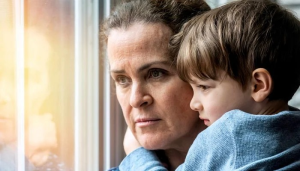When is it all going to end?
18 December 2023
By Karen Hall
“You don’t know where it’s all going to end. You ask: ‘What am I going to do?’
“You have to worry about it, and it is a worry, particularly when everything’s going up and not going down. You constantly worry about it.”
The recent quote came from a BBC NI piece on the cost of living and mental health. The article contains statistics from polling Mental Health Foundation recently undertook to understand how the increases in the cost-of-living impacts people’s mental health. The polling follows from similar polling last year, and to summarise quickly – things aren’t getting any better.
Many people aren’t able to meet their basic needs. 1 in 4 expressed worry about being able to heat their home. 1 in 5 are worried about paying the bills. Due to their financial situation, 34% of respondents felt anxious, 30% felt worried, and 12% felt sad.


The bizarre thing is that statistics like this barely shock any more, particularly in the last couple of years, where discussions and news articles about the cost-of-living crisis have become so commonplace as to lose all meaning.
The people of Northern Ireland have shown amazing resilience in recent years. We have been hit by one thing on top of another, from austerity to the pandemic to this current cost-of-living crisis, which is seeing the costs of everyday essentials rise to unaffordable levels for many people. Unsurprisingly, this is taking its toll on our mental health, with the relentless challenges of the last decade driving stress, anxiety, and depression.

While feelings of anxiety, stress, or low mood are natural reactions to challenging life events, the fact that there’s been no respite for people for such a long period of time is a huge concern. Poverty and financial strain are key drivers of poor mental health. Respondents to the polling reported that 24% experienced poorer quality sleep, 19% met with friends less often and 11% exercised less often.
The longer people live with these feelings, the more likely they will develop more severe mental health problems. Then, we can enter a cycle of despair where mental health problems stop us from living our lives and can hit our incomes, and the resulting financial strain puts us under more pressure that negatively affects our mental health. And so, the cycle continues.
How can we break this cycle?

We need immediate, short-term solutions and longer-term planning to ensure that no one in Northern Ireland is struggling to afford the most basic of living essentials – a safe, warm home and enough food to eat. Everyone has the right to financial security to prevent mental distress.
We need a stable government in Northern Ireland to deliver on the promises made in the Mental Health Strategy, and those strategies still awaiting publication, particularly the Anti-Poverty Strategy. But most importantly, we need to ensure that policymakers understand that poverty is a driver of poor mental health.
Amazing organisations across Northern Ireland have been a lifeline for so many. Working on the front line to support people experiencing financial distress, these organisations are saving lives. They deserve so much more than our thanks. They need sustainable funding to ensure their survival so they can continue to support people and communities who have borne the brunt of the impact and that focus on those experiencing the greatest inequality.
Good mental health should be the measure of a thriving society. We need that goal to drive our governments’ decisions. When they return to government, eradicating poverty must be at the forefront of our politicians’ priorities.
If you have money worries, find out what support is available on the Mental Health Foundation Website.
Karen Hall is the Head of Northern Ireland at Mental Health Foundation








